Alabama’s first openly gay lawmaker Patricia Todd to lead LGBTQ coalition
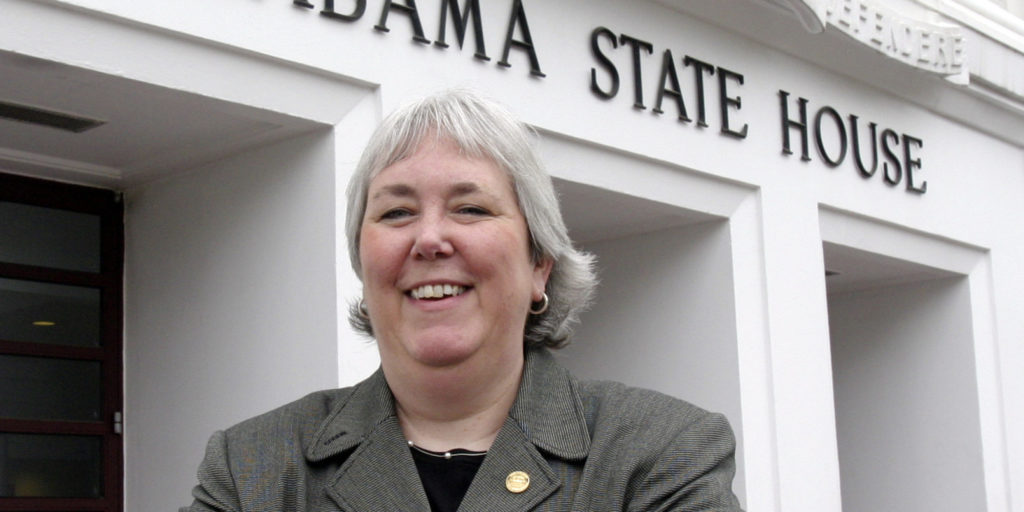
One Orlando Alliance, central Florida’s largest coalition of LGBTQ advocacy groups, on Tuesday named Birmingham-Democrat state Rep. Patricia Todd executive director. Todd, Alabama’s first openly gay lawmaker will lead the LGBTQ coalition in Orlando, Fla., in an effort to bring together LGBTQ+ organizations and work to transform Central Florida into an accepting and unified community for all. Eighteen organizations formed the alliance in June 2016 following the Pulse nightclub shooting in Orlando to offer short-term crisis counseling, emergency care packages, and money to victims and their families. Since then, the alliance has grown to more than forty groups with a long-term vision to support and empower LGBTQ residents in central Florida. Todd has over three decades of experience advocating for justice and equality. Born and raised in Kentucky, Todd served two years in Washington, D.C. with the National Organization for Women before moving to Alabama. She went on to serve as Executive Director for AIDS Alabama, the statewide HIV/AIDS organization, and State Director for the Human Rights Campaign. In 2006, she garnered national attention when she became the first openly gay elected official to serve in the Alabama House of Representatives. She was re-elected in 2010 without opposition. After serving 12 years, she did not seek re-election. Her farewell speech to the House received a standing ovation. “Patricia has been training for this role her whole life. She’s a natural fit and we’re delighted she’ll be joining the coalition in this important work,” remarked Jennifer Foster, Chair of the Board of Directors and one of the original co-conveners of the Alliance. Todd said of her new position, “I am honored to be selected as the Executive Director for One Orlando Alliance. I look forward to working alongside Alliance members to create a more inclusive Central Florida community.” “The work of One Orlando Alliance serves as a national model for how to pull community together in the wake of unimaginable tragedy,” Todd added. “I’m humbled to help tell that story of the origin and even more excited about our shared vision for a stronger, more unified future. Together, the Alliance will ensure that justice and equality are rights of all who call Central Florida home.” The selection of Todd followed an extensive nation-wide search that began in August, 2017. She will begin her new role on June 1.
FBI reviews handling of terrorism-related tips
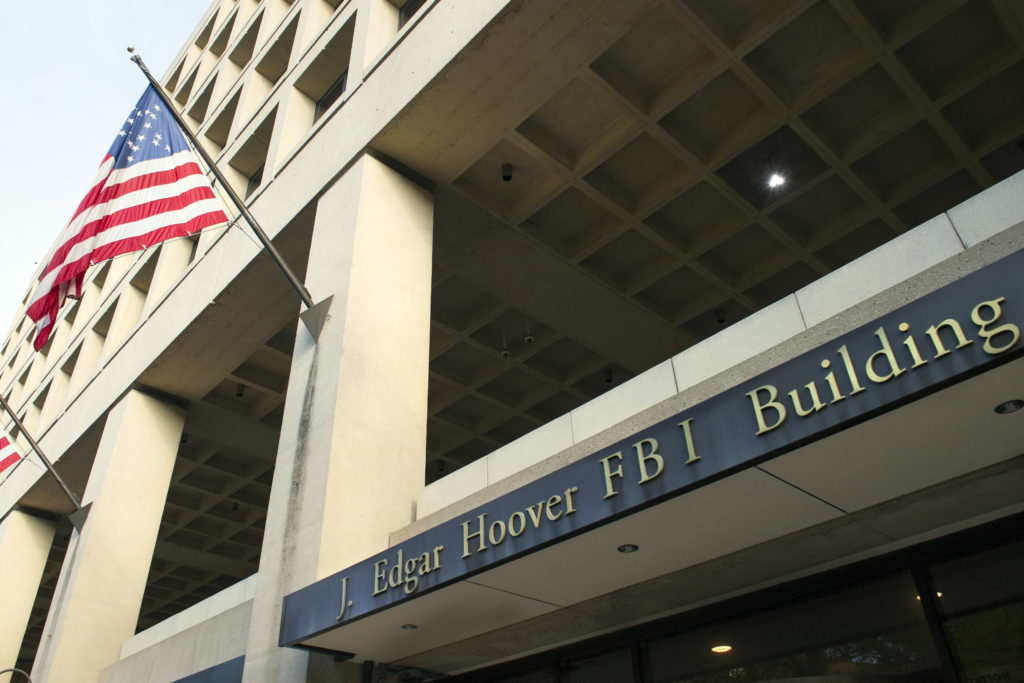
The FBI has been reviewing the handling of thousands of terrorism-related tips and leads from the past three years to make sure they were properly investigated and no obvious red flags were missed, The Associated Press has learned. The review follows attacks by people who were once on the FBI’s radar but who have been accused in the past 12 months of massacring innocents in an Orlando, Florida, nightclub, injuring people on the streets of New York City, and gunning down travelers in a Florida airport. In each case, the suspects had been determined not to warrant continued law enforcement scrutiny months and sometimes years before the attacks. The internal audit, which has not been previously reported, began this year and is being conducted in FBI field offices across the country. A senior federal law enforcement official described the review as an effort to “err on the side of caution.” The audit is essentially a review of records to ensure proper FBI procedures were followed. It’s an acknowledgment of the challenge the FBI has faced, particularly in recent years, in predicting which of the tens of thousands of tips the bureau receives annually might materialize one day into a viable threat. Investigations that go dormant because of a lack of evidence can resurface instantly when a subject once under scrutiny commits violence or displays fresh signs of radicalization. FBI Director James Comey has likened the difficulty to finding not only a needle in a haystack but determining which piece of hay may become a needle. Though there’s no indication of significant flaws in how terrorism inquiries are opened and closed, the review is a way for the FBI to “refine and adapt to the threat, and part of that is always making sure you cover your bases,” said the law enforcement official, who was not authorized to discuss the matter by name. The pace of the FBI’s counterterrorism work accelerated with the rise of the Islamic State group, which in 2014 declared the creation of its so-called caliphate in Syria and Iraq and has used sophisticated propaganda to lure disaffected Westerners to its cause. By the summer of 2015, Comey has said, the FBI was “strapped” in keeping tabs on the group’s American sympathizers and identifying those most inclined to commit violence. Social media outreach by IS has appealed to people not previously known to the FBI but also enticed some who once had been under scrutiny to get “back in the game,” said Seamus Hughes, deputy director of George Washington University’s Program on Extremism. “The fact that there was a physical location and a caliphate announced, it helped kind of drive folks back in when they might have drifted away,” Hughes said. The review covers inquiries the FBI internally classifies as “assessments” — the lowest level, least intrusive and most elementary stage of a terror-related inquiry — and is examining ones from the past three years to make sure all appropriate investigative avenues were followed, according to a former federal law enforcement official who spoke on condition of anonymity to discuss the process. Assessments are routinely opened upon a tip — whether from someone concerned about things such as activity in a neighbor’s garage, a co-worker’s comments or expressions of support for IS propaganda — and are catalogued by the FBI. The bureau receives tens of thousands of tips a year, and averages more than 10,000 assessments annually. FBI guidelines meant to balance national security with civil liberties protections impose restrictions on the steps agents may take during the assessment phase. Agents, for instance, may analyze information from government databases and open-source internet searches, and can conduct interviews. But they cannot turn to more intrusive techniques, such as requesting a wiretap or internet communications, without higher levels of approval and a more solid basis to suspect a crime or national security threat. The guidelines explicitly discourage open-ended inquiries and say assessments are designed to be “relatively short,” with a supervisor signing off on extension requests. Many assessments are closed within days or weeks when the FBI concludes there’s no criminal or national security threat, or basis for continued scrutiny. The system is meant to ensure that a person who has not broken the law does not remain under perpetual scrutiny on a mere hunch that a crime could eventually be committed. But on occasion, and within the past year, it’s also meant that people the FBI once looked at but did not find reason to arrest later went on to commit violence. In the case of Omar Mateen, that scrutiny was extensive, detailed and lengthy. Mateen, who shot and killed 49 people at an Orlando nightclub in June, was investigated for 10 months in 2013 and interviewed twice after a co-worker reported that Mateen had claimed connections to al-Qaida. As part of a preliminary investigation, agents recorded Mateen’s conversations and introduced him to confidential sources before closing the matter. That kind of investigation is more intensive than an assessment and permits a broader menu of tactics, but it also requires a stronger basis for suspicion. Mateen was questioned again in 2014 in a separate investigation into a suicide bomber acquaintance. Comey has said he has personally reviewed that inquiry’s handling and has concluded it was done well. The FBI in 2014 also opened an assessment on Ahmad Khan Rahimi, who last September was charged in bombings in Manhattan and New Jersey, based on concerns expressed by his father. The FBI said it closed the review after checking databases and travel and finding nothing that tied him to terrorism. Esteban Santiago, the man accused in the January shooting at the Fort Lauderdale, Florida, airport that killed five people, had also been looked at by the FBI. He had walked into the bureau’s office in Anchorage, Alaska, two months earlier and claimed his mind was being controlled by U.S. intelligence officials. In that case, too, the FBI closed its assessment after interviewing family members and checking databases. Each act of
Florida’s I-4 corridor is where Election 2016 could be won
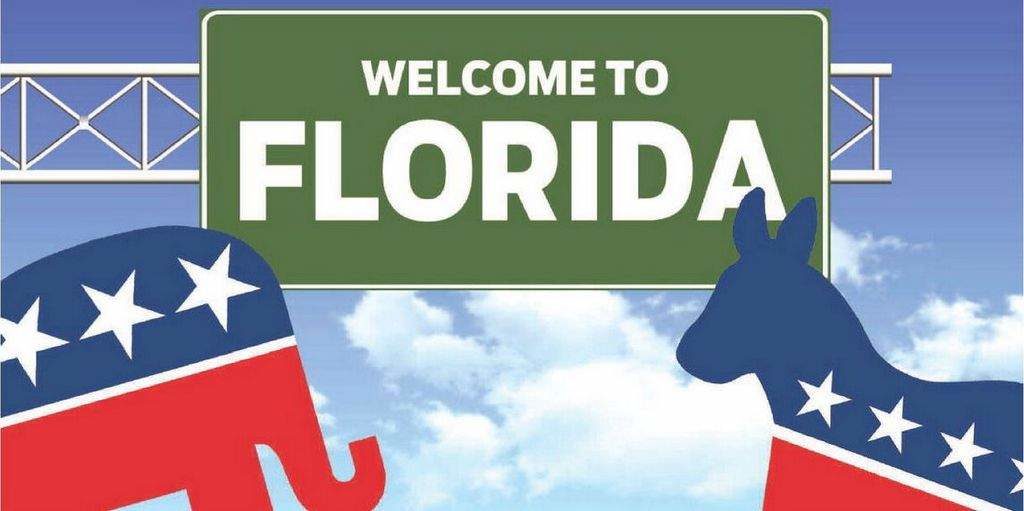
The Interstate 4 corridor stretching from the Tampa Bay area through Orlando to Daytona Beach is a bellwether of the nation’s largest swing state, where both candidates campaigned vigorously last week and President Barack Obama on Friday called on voters here to support Hillary Clinton. North Florida is predictably Republican, and South Florida remains strongly Democratic, leaving a swath around Interstate 4 as the state’s primary battleground. The 6.5 million residents living around the 140-mile highway reflect the diversity of the state, and they account for a third of Florida’s registered voters. The large bustling metros of Tampa and Orlando are broken up by the citrus and cattle fiefdoms of Polk County. Kissimmee in suburban Orlando has become a destination for Puerto Ricans fleeing the deteriorating economy on the island. The suburbs of Orlando give way to the motors sports traditions of Daytona Beach and the gateway to the Kennedy Space Center. More than a third of I-4 voters are registered Democrats, a third are registered Republicans and a quarter have no party affiliation. — John Long is looking for someone who will overturn the political apple cart, and sees Trump as the answer. He feels there are too many ties between Big Business and Washington politicians, and small businesses are overlooked. Clinton is at the center of that nexus, and she hasn’t been held accountable for using a private email server as secretary of state, he said. “That’s what I like about Donald Trump. He’s an outsider,” said Long, a former Kennedy Space Center worker, who now runs a bicycle shop on Florida’s Space Coast. “Hillary is too embedded in the political machine, in it for her own desire for power at the expense of the nation.” — Robert Thomas wants to do his civic duty and vote for president but finds shortcomings in both major-party candidates. So he is voting for Libertarian candidate Gary Johnson. Thomas, who is African-American, worries about some of the racist views of Trump supporters. But he feels the Democratic administration of President Barack Obama only “has paid a lot of lip-service” to middle-class economic recovery from the recession, and it’s not enough for him to vote for Clinton, even though he respects her experience. “I’m not voting for either,” Thomas, a retired soldier from the elite 101st Airborne Division who has voted Republican most of his life, said while fishing on the Cocoa Beach Pier. “I’m going to vote for Gary. Put him on the ticket.” — Donna-Lynne Dalton, who is voting for Clinton, has two things on her mind: higher wages and better benefits for her workers. Dalton, a business agent with Teamsters Local 385, who represents Walt Disney World workers, including costumed characters, worries that a Trump presidency would chip away at workers’ rights. Workers “don’t have a lot of rights as it is, but a union contract does protect them,” Dalton said in her union hall office in Orlando. “Trump has made it clear that he’s not in favor of any of that.” — Robin Rowbotham insists she isn’t throwing her vote away by voting for Green Party candidate Jill Stein. Rowbotham, who dances under the stage name “Tesla” at the famous Tampa strip club, Mons Venus, said she wanted to support Clinton but changed her mind after the debates reinforced her belief that the Democrat is dishonest. She calls Trump’s discussion about groping women without their permission unacceptable. “As a dancer, I get guys say things but I do not condone it. I feel that if you say something, chances are you are going to do it,” she said in the club’s dressing room of the club. “Do we want somebody like that leading the country?” Club owner Joe Redner, an independent candidate for state Senate, agreed. “My dancers here, they don’t allow these customers to treat them like that. Why the hell should a candidate for the president of the United States be allowed to treat women like that,” he said. — Diana Font had been wavering about who to support for president. The Orlando-area event planner and executive director of the local Puerto Rican Chamber of Commerce was a supporter of Marco Rubio in the Republican primary and wanted to stay true to her party. But Trump’s multiple bankruptcies raised red flags about his ability to lead the country, and the allegations that he had groped women without their permission, also gave her deep pause. The last debate was the final straw, said the lifelong Republican, since she felt he was whining “that everybody is against him.” She is voting for Clinton. Republished with permission of The Associated Press.
Hillary Clinton sets out most efficient path to get to 270

Hillary Clinton doesn’t appear all that interested in making scenic stops on her state-to-state quest to become president. The Democratic nominee is instead programming her GPS to take her on the quickest route to collect the 270 Electoral College votes she needs to win the White House. With three months until Election Day, Clinton’s campaign is focused on capturing the battleground states that have decided the most recent presidential elections, not so much on expanding the map. Clinton’s team doesn’t rule out an effort at Arizona, a state with a booming population of Latino voters that polls find are loath to support Trump. And Georgia, a bastion of the Deep South, echoes recent population trends in other Southeastern states where Clinton is competing aggressively. But neither is among the 11 battleground states that Clinton’s television advertising plans and her travel schedule point to as her focus. Those states are the perennial top-tier targets Florida and Ohio, plus Colorado, Iowa, Michigan, Nevada, New Hampshire, North Carolina, Pennsylvania, Virginia and Wisconsin. President Barack Obama carried them all in 2008, and missed out on only North Carolina during his 2012 re-election campaign. “The last two elections have given Democrats an electoral path for victory,” said Clinton campaign adviser John Anzalone. “And our strategy is to efficiently use our resources to lock down the support we need to reach 270 electoral votes.” After a bump in support for Clinton in national polls that followed the Democratic convention and tracked Trump’s recent gaffes, the number of states where Clinton will invest her time and money may get smaller than 11. When the Clinton campaign booked more than $23 million in new television ad time late this past week to start on Monday, it spent most of the money in just three states: Florida, Pennsylvania and Ohio. Feeling good about Colorado and Virginia, the campaign passed on giving those states a fresh injection of ad dollars, though they remain heavily staffed with organizers. Likewise, officials with the pro-Clinton group Priorities USA say they have put its advertising plans there on hold. Meanwhile, Trump’s travel following the Republican convention suggests he’s given up on plans to force Clinton to defend traditional Democratic bastions California and New York. Beyond that, it’s not clear how he plans to chart his course to 270. “I have states that no other Republican would do well in that I think I’m going to win,” Trump told The Washington Post this past week. “But I don’t want to name those states.” Trump’s campaign has yet to run a single television ad and has made curious decisions about where to send its candidate. This past week, for example, Trump spent a day in Portland, Maine, chasing after the single electoral vote at stake along the state’s largely Democratic southern coast. There have been no such distractions for Clinton since the end of her convention, aside from a quick stop in Nebraska, a visit that was probably as much about spending time on stage with billionaire investor Warren Buffett than picking up the one electoral vote in the Omaha area. (Maine and Nebraska are the two states that award electoral votes by congressional district instead of a statewide winner-take-all vote.) This coming week, Clinton will be in Florida. So will Trump. That’s no surprise, as a win there plus victories in every state (and the District of Columbia) that have voted Democratic since 1992 would give Clinton a winning total of 271 electoral votes. Florida Republican consultant Brett Doster said simply of his state: “If we don’t win here, I just don’t see how we win.” Despite the 2016 campaign’s unscripted form, Democrat and Republican pollsters alike said in the past week that Florida is competitive and is expected to stay that way into the fall. The largest share of single-state spending in Clinton’s most recent ad buy came in Florida, at more than $4.2 million, and that, plus an aggressive pursuit of Latino voters, may give her a narrow edge. In Florida’s Orange County, which includes Orlando, the Democratic edge among registered voters has grown by 15 percent since 2008. Since late last year, roughly 1,000 Puerto Rican families a month have relocated to Florida due to the U.S. territory’s fiscal crisis, many of them concentrating in and around Orlando’s heavy service-sector job scene. Bilingual teams of Clinton employees are registering first-time Puerto Rican voters at grocery stores, malls and community centers. Republican pollster Whit Ayres said Trump’s problems in Florida go deeper than his lack of advertising and overwhelmingly unpopular standing among Latinos. He said Trump’s recent criticism of the Muslim family of a fallen U.S. soldier is not likely to sit well in a state with 22 military installations and more than 1.5 million veterans. “The attack on the Gold Star family makes it unlikely for him to expand in Florida beyond where he is right now,” said Ayres, an adviser to Republican Sen. Marco Rubio of Florida. While Trump may not have a path without Florida, Clinton can lose the state and still find another way through the battlegrounds to reach 270. That’s no doubt why from June 8 through Monday, Clinton and Democratic groups supporting her will have outspent Republican groups by 15 to 1 in those states, according to data from Kantar Media’s CMAG political advertising tracker. The Clinton campaign and deep-pocketed Democratic groups such as Priorities USA have poured a combined $66 million into television and radio advertising in those 11 states. Trump’s campaign hasn’t spent a dollar on television advertising, while Republican groups have only spent about $4.3 million. Put simply, Anzalone said, Clinton has options. “But this is a dynamic race and we will continue to look at all pathways as this race develops,” he said. Republished with permission of the Associated Press.
Hillary Clinton airing thousands of positive ads while Donald Trump silent
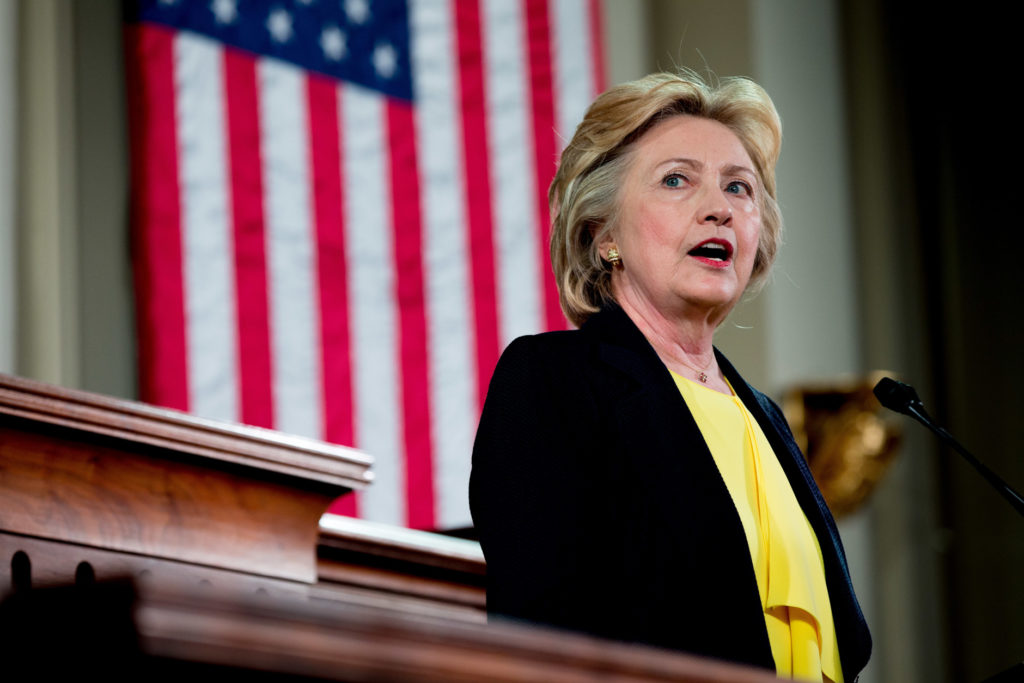
It would take almost 14 days of eyes glued to the television to watch all the feel-good Hillary Clinton ads that have aired since the general election campaign began last month. Meanwhile, anyone flipping through the channels looking for positive ads about Donald Trump would be disappointed: He hasn’t yet put up a spot appealing to November voters, and groups supporting him have been similarly silent. The lopsided commercial airwaves show the presidential candidates have drastically different views of the importance of traditional political campaigning. Trump says he sees little need for advertising at this stage. Instead, he has been banking on free media coverage propelled by his celebrity appeal. As a consequence, Trump has largely ceded control over what the voting public is hearing about him. Clinton’s large batch of biographical ads has given her an opportunity to directly influence views about her image. Up next is what amounts to an hour-long infomercial Thursday night in Cleveland, as Trump accepts his party’s nomination during a speech that will be televised widely in prime time. Clinton has the same perk the following week from the Democratic convention in Philadelphia. After that, Trump’s campaign has said he may begin advertising. That would be a dramatic change. While Trump has aired zero ads, Clinton has been piping thousands of commercials into the homes of swing-state voters in places like Florida, Ohio, North Carolina and Virginia. Specific Florida markets such as Orlando, Tampa and Fort Myers have been favored targets, as well as Denver, for Clinton’s ads. Since June 8, the day after she claimed the Democratic nomination, Clinton has put at least 30,700 commercials on broadcast TV, an Associated Press review of Kantar Media’s campaign advertising data shows. The majority highlight her work as first lady to expand health care for children. “For Hillary, it’s always been about kids,” a narrator says in an ad called “Quiet Moments,” which has run more than any other, some 11,400 times as of this week. A 60-second spot called “Always” seems to spell out the reason for her ads. “She would grow up to be one of the most recognizable women in the world,” a narrator says. “But less well-known are the causes that have been at the center of her life.” The commercial rolls through milestones in her life, beginning with black-and-white footage of her toddling down steps. The few ads paid for by Trump supporters bash Clinton rather than make the case for him. For example, a National Rifle Association ad urges people to vote for Trump by flashing his name for four seconds at the end of a 30-second spot. But the narrator says nothing about him — and doesn’t even utter his name. Clinton’s campaign released a new ad this week that shows children watching television as Trump makes some of his most inflammatory comments, including him saying, “And you can tell them to go (bleep) themselves.” The commercial asks, “Our children are watching. What example will we set for them?” That follows two Clinton campaign ads that mock him for watching TV shows for military advice and consulting with himself for policy strategy. The pro-Clinton super PAC Priorities USA is also airing thousands of spots calling Trump “too dangerous for America.” Political advertising strategists are torn over whether the lack of positive Trump ads matters. “You never want to be in the position of being outshouted by your opponent,” said Russ Schriefer, a senior adviser to Mitt Romney in the 2012 presidential race. He and others said the crush of unanswered summertime Democratic advertising hardened voters’ opinions of Romney as an uncaring businessman. Both Trump and Clinton are historically disliked by voters, according to recent AP-GfK surveys, making upbeat, biographical ads particularly important, Schriefer said. “Someone needs to inject favorability into the bloodstream of the electorate,” he said. “Since she is doing that in a vacuum, her ads will work better.” Yet Fred Davis, a Republican ad-maker not involved in the 2016 campaign, argues this race has unique features that dampen the impact of ads. “They are perhaps the best-known presidential final contenders in our lifetime,” he said. “So the value of bio ads suddenly drops. This would imply Hillary wasting her moolah; Trump playing it smart.” Trump’s team was similarly dismissive of ads early in the primaries. He eventually did put up ads — including some traditional “who I am” ones similar in tone to those from Clinton and previous presidential contenders. Those offer clues of what Trump might say in his general election ads. In one of his softest commercials, his son Donald Trump Jr. speaks to the camera with a row of family photos behind him. “Growing up, my brother, sister and I had to really know what we were talking about before bringing him any kind of a proposal,” he says. The elder Trump is shown kissing and hugging kids, as his son adds, “He may be a little less tough on his grandchildren right now, but it’s that toughness that I want renegotiating trade deals with China and Mexico.” He concludes: “My father will make an incredible president.” Republished with permission of the Associated Press.
A divided Senate answers Orlando with gridlock on gun curbs
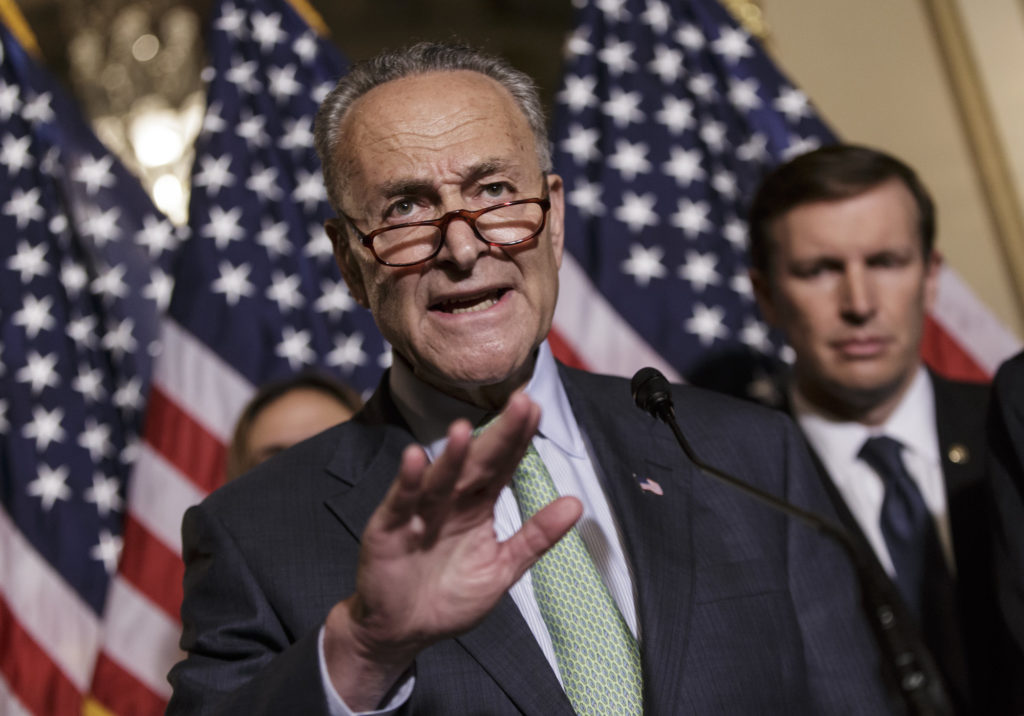
A divided Senate blocked rival election-year plans to curb guns on Monday, eight days after the horror of Orlando’s mass shooting intensified pressure on lawmakers to act but knotted them in gridlock anyway — even over restricting firearms for terrorists. In largely party-line votes, rejected were one proposal from each side to keep extremists from acquiring guns and another shoring up the government’s existing system of required background checks for many firearms purchases. With the chamber’s visitors’ galleries unusually crowded for a Monday evening — including people wearing orange T-shirts saying #ENOUGH gun violence — each measure fell short of the 60 votes needed to progress. Democrats called the GOP proposals unacceptably weak while Republicans said the Democratic plans were overly restrictive. The stalemate underscored the pressure on each party to give little ground on the emotional gun issue going into November’s presidential and congressional elections. It also highlighted the potency of the National Rifle Association, which urged its huge and fiercely loyal membership to lobby senators to oppose the Democratic bills. “Republicans say, ‘Hey look, we tried,’” said Senate Minority Leader Harry Reid, of Nevada. “And all the time, their cheerleaders, the bosses at the NRA, are cheering them.” Senate Majority Leader Mitch McConnell, R-Ky., said the Orlando shootings — in which the FBI says the American-born gunman swore allegiance to a leader of the Islamic State group — show the best way to prevent attacks by extremists is to defeat such groups overseas. “Look, no one wants terrorists to be able to buy guns or explosives,” McConnell said. He suggested that Democrats were using the day’s votes “as an opportunity to push a partisan agenda or craft the next 30-second campaign ad,” while Republicans wanted “real solutions.” That Monday’s four roll-call votes occurred at all was testament to the political currents buffeting lawmakers after gunman Omar Mateen‘s June 12 attack on a gay nightclub. The 49 victims who died made it the largest mass shooting in recent U.S. history, topping the string of such incidents that have punctuated recent years. The FBI said Mateen — a focus of two terror investigations that were dropped — described himself as an Islamic soldier in a 911 call during the shootings. That let gun control advocates add national security and the specter of terrorism to their arguments for firearms curbs, while relatives of victims of past mass shootings and others visiting lawmakers and watching the debate from the visitors’ galleries. GOP senators facing re-election this fall from swing states were under extraordinary pressure. One, Sen. Kelly Ayotte of New Hampshire, voted Monday for the Democratic measure to block gun sales to terrorists, a switch from when she joined most Republicans in killing a similar plan last December. She said that vote — plus her support for a rival GOP measure — would help move lawmakers toward approving a narrower bipartisan plan, like one being crafted by Sen. Susan Collins of Maine. Monday’s votes came after Sen. Chris Murphy, D-Conn., led a near 15-hour filibuster last week demanding a Senate response to the Orlando killings. Murphy entered the Senate shortly after the December 2012 massacre of 20 first-graders and six educators in Newtown, Connecticut, but that slaughter and others have failed to spur Congress to tighten gun curbs. The last were enacted in 2007, when the background check system was strengthened after that year’s mass shooting at Virginia Tech. With Mateen’s self-professed loyalty to extremist groups and his 10-month inclusion on a federal terrorism watch list, Sen. Dianne Feinstein, D-Calif., proposed letting the government block many gun sales to known or suspected terrorists. People buying firearms from federally licensed gun dealers can currently be denied for several reasons, chiefly for serious crimes or mental problems, but there is no specific prohibition for those on the terrorist watch list. That list currently contains around 1 million people — including fewer than 5,000 Americans or legal permanent residents, according to the latest government figures. No background checks are required for anyone buying guns privately online or at gun shows. The GOP response to Feinstein was an NRA-backed plan by Sen. John Cornyn, R-Texas. It would let the government deny a sale to a known or suspected terrorist — but only if prosecutors could convince a judge within three days that the would-be buyer was involved in terrorism. The Feinstein and Cornyn amendments would require notification of law enforcement officials if people, like Mateen, who’d been under a terrorism investigation within the past five years were seeking to buy firearms. Republicans said Feinstein’s proposal gave the government too much unfettered power to deny people’s constitutional right to own a gun. They also noted that the terrorist watch list has historically mistakenly included people. Democrats said the three-day window that Cornyn’s measure gave prosecutors to prove their case made his plan ineffective. The Senate rejected similar plans Feinstein and Cornyn proposed last December, a day after an attack in San Bernardino, California, killed 14 people. Murphy’s rejected proposal would widely expand the requirement for background checks, even to many private gun transactions, leaving few loopholes. Senate Judiciary Committee Chairman Charles Grassley of Iowa, defeated plan increased money for the background check system. Like Murphy’s measure, it prodded states to send more records to the FBI, which operates the background check system, of felons and others barred from buying guns. Grassley’s proposal also revamped language prohibiting some people with mental health issues from buying a gun. Democrats claimed that language would roll back current protections. Monday’s votes were 53-47 for Grassley’s plan, 44-56 for Murphy’s, 53-47 for Cornyn’s and 47-53 for Feinstein’s — all short of the 60 needed. Separately, Collins was laboring to fashion a bipartisan bill that would prevent people on the no-fly list — with just 81,000 names— from getting guns. There were no signs Monday that it was getting wide support or would receive a vote. Republished with permission of The Associated Press.
Diane Roberts: Muslims, immigrants aren’t the problem. It’s guns.
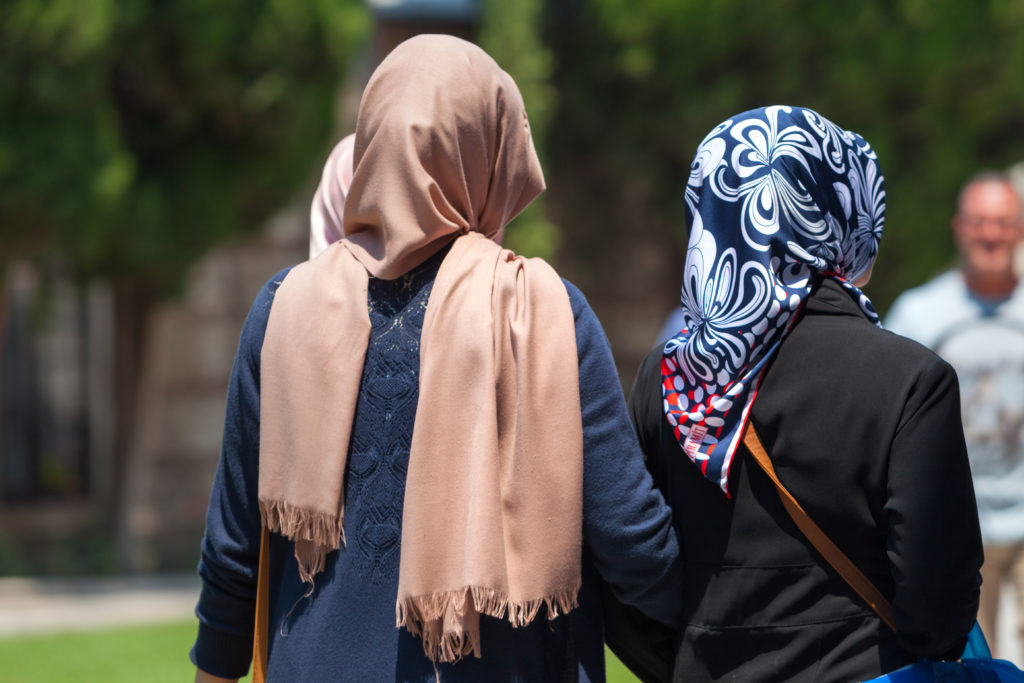
It’s back to business as usual: hating Muslims, loving guns. We had just celebrated the life of Muhammad Ali, the most famous, most beloved Muslim in the nation’s history. For a minute, one sweet minute, Americans might have been moved to think more expansively about Islam. And race. And violence. Some of us dared hope that the toxic sewer-flow of Trumpery might at least slow down, that America might manage a rare moment of introspection. Then Omar Mateen, a deranged homophobic — or, perhaps, closeted and self-loathing — loser with delusions of jihadi grandeur shot up an Orlando nightclub, killing 49 people, mostly young, mostly gay, mostly Latino. The leader of the Republican Party responded with the intelligence and accuracy we’ve come to expect: “The killer, whose name I will not use or ever say, was born in Afghan (sic), of Afghan parents, who immigrated to the United States.” He added, “The only reason the killer was in America in the first place was because we allowed his family to come here.” Omar Mateen was an American citizen. He was born in Queens, New York. Just like Donald Trump. Mateen’s parents were immigrants; Donald Trump’s mother was an immigrant. Trump’s solution? “When I’m elected I will suspend immigration from areas of the world where there’s a proven history of terrorism against the United States, Europe or our allies until we fully understand how to end these threats.” Right. So no Irish: some of them have perpetrated terrorist attacks on Britain, our closest ally. And no British, either — remember the shoe bomber? No French or Belgians, not after the atrocities in Paris and Brussels. Nobody from Africa or India, either. You don’t know where they’ve been. No Iraqis or Afghans — too bad we promised those interpreters we’d get them out after they helped us in the war. Cubans? Are you kidding? Ever heard of Orlando Bosch or Luis Posada Cariles? Nobody from Canada, either, not after the Toronto 18 plotted to blow up the Toronto Stock Exchange in 2006. No Mexicans. Obviously. Perhaps President Trump will suspend the Constitution so we can round up all Muslims — practicing or nominal — regardless of citizenship. That’ll learn ‘em. We’d better apprehend Christians, too — practicing or nominal — since they’re responsible for most terrorist attacks on U.S. soil: abortion clinics, gay bars, movie theaters, federal buildings, black churches. But God forbid we do anything about guns. Omar Mateen’s guns, an AK-15 and a 9 mm Glock, were legal. It didn’t matter that the guy was interviewed twice by the FBI or that he was on a watch list or that he beat his wife or that he behaved erratically and belligerently at times, talking about killing people. He passed his mental health screening and background check. Thanks to our pinhead of a governor with his A+ NRA rating, our craven legislature, our cowed citizenry, who would rather arm themselves than think, and Marion Hammer, that foul banshee of a gun lobbyist who rules the Capitol, the state of Florida enables firearm violence. The state of Florida — all of us — should have a long stare into our own souls. We’ll probably blame Islam instead. Or the Internet. Movies. Bad parenting. Poor diet. Anything but guns. Anything but the pathetic system that more or less allows anyone to get any weapon he wants. Assault rifles, machine guns, flamethrowers. Hell, you can get a grenade launcher if you try. If these “safeguards” didn’t stop Omar Mateen, maybe we need to adjust them. Maybe we need to figure out a better way to test mental health. You have to wait longer and go through more professional assessment to adopt a puppy. Muslims aren’t the problem. Immigrants aren’t the problem. Guns are the problem. Guns. ___ Diane Roberts is the author of “Tribal: College Football and the Secret Heart of America.” She teaches at Florida State University.
Orlando killer appears to have been ‘homegrown extremist’
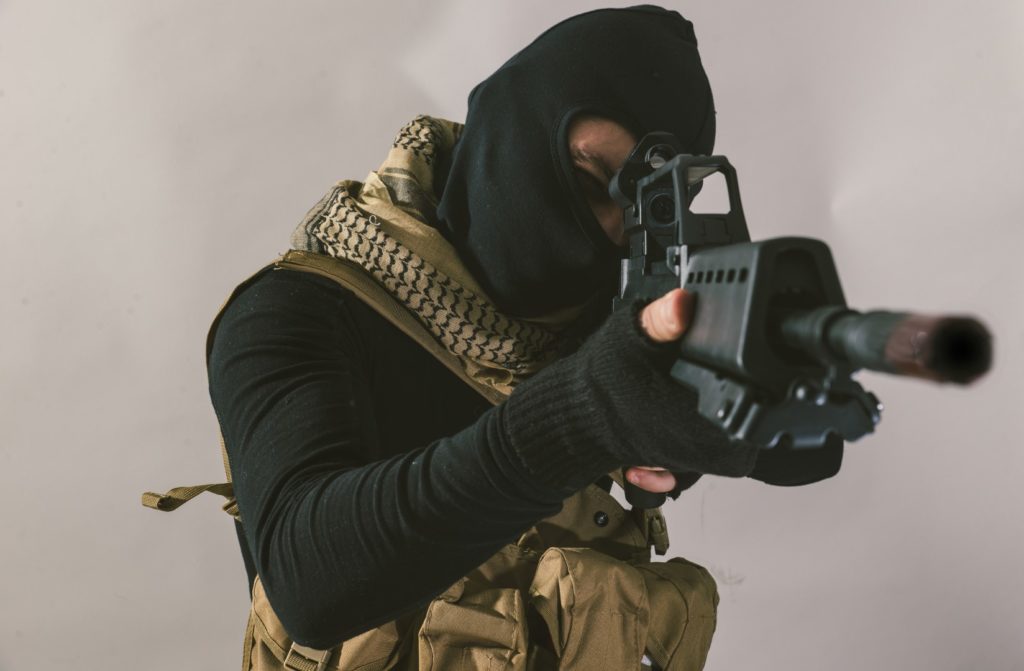
The gunman whose attack on a gay nightclub left 49 victims dead appears to have been a “homegrown extremist” who espoused support for a jumble of often-conflicting Islamic radical groups, the White House and the FBI said Monday. As Orlando mourned its dead with flowers, candles and vigils, counterterrorism investigators dug into the background of 29-year-old Omar Mateen, the American-born Muslim who carried out the deadliest mass shooting in modern U.S. history. “So far, we see no indication that this was a plot directed from outside the United States, and we see no indication that he was part of any kind of network,” said FBI Director James Comey. But he said Mateen was clearly “radicalized,” at least in part via the Internet. Comey said the bureau is also trying to determine whether Mateen had recently scouted Disney World as a potential target, as reported by People.com, which cited an unidentified federal law enforcement source. “We’re still working through that,” Comey said. The FBI chief defended the bureau’s handling of Mateen during two previous investigations into his apparent terrorist sympathies. As for whether there was anything the FBI should have done differently, “so far, the honest answer is, I don’t think so,” Comey said. Despite Mateen’s pledge of fealty to the Islamic State, a murky combination of other possible motives and explanations emerged, with his ex-wife saying he suffered from mental illness and his Afghan-immigrant father suggesting he may have acted out of anti-gay hatred. He said his son got angry recently about seeing two men kiss. The Orlando Sentinel and other news organizations quoted regular customers at the gay bar as saying they had seen Mateen there a number of times. “Sometimes he would go over in the corner and sit and drink by himself, and other times he would get so drunk he was loud and belligerent,” said Ty Smith. Smith said he saw the killer inside at least a dozen times. Wielding an AR-15 semi-automatic rifle and a handgun, Mateen opened fire at Pulse Orlando early Sunday in a three-hour shooting rampage and hostage siege that ended with a SWAT team killing him. During the attack, he called 911 to profess allegiance to the Islamic State group. At the White House, President Barack Obama said there is no clear evidence so far that Mateen was directed by the group, calling the attack an apparent example of “homegrown extremism.” More details of the bloodbath emerged, with Orlando Police Chief John Mina saying Mateen was “cool and calm” during phone calls with police negotiators. But the chief said he decided to send the SWAT team in and bash through a wall after Mateen holed up with hostages in a bathroom and began to talk about bombs and an explosive vest. “We knew there would be an imminent loss of life,” Mina said. As it turned out, Mateen had no explosives with him. Five of the wounded were reported in grave condition, meaning the death toll could rise. A call went out for blood donations. In Orlando, mourners piled bouquets around a makeshift memorial, and people broke down in tears and held their hands to their faces while passing through the growing collection of flowers, candles and signs about a mile from the site of the massacre. About 300 employees of the Red Lobster restaurant chain — some in business suits, some in chef’s uniforms — emerged from the company’s corporate headquarters and walked two-by-two across the street to the memorial, each carrying a red or white carnation. “We will not be defined by the act of a cowardly hater,” vowed Mayor Buddy Dyer, whose city of a quarter-million people is known around the globe as the home of Walt Disney World and other theme parks. The tragedy hit the city’s gay and Hispanic communities especially hard. It was Latino Night at the club when the attack occurred. “As the names come out, they are overwhelmingly Latino and Hispanic names,” said Christina Hernandez, a Hispanic activist. “These were not just victims of the LBGT community, but of the Hispanic community, as well. This was senseless bloodshed.” Mateen’s grasp of the differences between Islamic extremist groups appeared shaky. During three calls with 911 dispatchers, Mateen not only professed allegiance to ISIS but also expressed solidarity with a suicide bomber from the Syrian rebel group Nusra Front, and a few years ago he claimed connections to Hezbollah, too – both ISIS enemies, according to Comey. The FBI became aware of Mateen in 2013 when co-workers reported that the private security guard claimed to have family connections to al-Qaida and to be a member of Hezbollah, too, Comey said. He was also quoted as saying he hoped that law enforcement would raid his apartment and assault his wife and child so that he could martyr himself. The FBI launched a 10-month preliminary investigation, following Mateen, reviewing his communications and questioning him, the FBI chief said. Mateen claimed he made the remarks in anger because co-workers were teasing him and discriminating against him as a Muslim, and the FBI eventually closed the case, Comey said. His name surfaced again as part of another investigation into the Nusra Front bomber. The FBI found Mateen and the man had attended the same mosque and knew each other casually, but the investigation turned up “no ties of any consequence,” Comey said. Mateen was added to a terror watch list in 2013 when he was investigated, but was taken off it soon after the matter was closed, according to Comey. People who are in that database are not automatically barred from buying guns, and in any case Mateen purchased his weapons in June, long after he was removed from the list. On Sunday, the bloodshed started after Mateen approached the club around 2 a.m., exchanged fire with an off-duty officer working security, and then went inside and started gunning people down, police said. After two other officers arrived and exchanged gunfire with Mateen, the gunman holed up in
Martin Dyckman: By electing pro-gun politicians, we are allies of home-grown terrorists
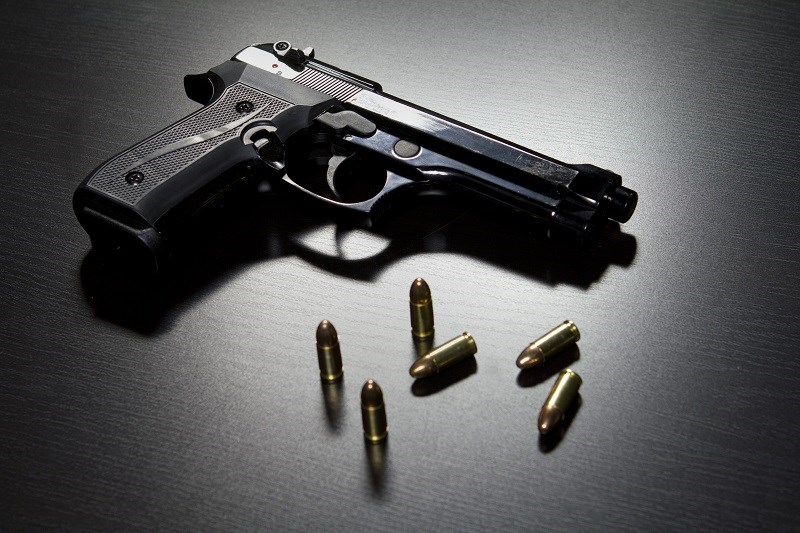
What fools we are. What willful, stubborn, persistent, incurable fools. Americans submit by the millions to the Transportation Security Administration’s multiple indignities and inconveniences. The TSA will cost us $5.1 billion this year. We’ll fill its trash barrels with tons of cosmetics, lotions and bottled water that we can’t carry on board. This is in the hope of preventing terrorists from committing more mass murders, such as those of September 11, 2001. And there haven’t been any more in that manner. But that guards only one gate, while leaving another gaping. Even as you next pose like a prisoner with arms raised or stand still for a TSA officer to wand you, some terrorist with massacre in mind could be walking into any gun shop and walking out with the means to carry it out. That’s what Omar Mateen did last week in Florida, where no permit is needed to buy or possess any firearm other than a machine gun. Florida allows even an AR-15 or its equivalent. Such weapons were invented for use in war, not self-defense. They fire as rapidly as a finger can pull a trigger. With a technique called bump fire, a trained shooter supposedly can achieve a rate of 700 rounds per minute. And so Florida is now the site of America’s worst mass shooting, with 49 innocent people dead and 53 others wounded, many grievously, at an Orlando night club named Pulse. Mateen appears to have been the most dangerous type of terrorist — homegrown, out of sight of any border control, virtually undetectable. And yet, there were warnings. His employer, a British-based security firm whose clients include the U.S. government, reportedly was told, according to The New York Times, that he spoke racial, ethnic and sexist slurs and talked about killing people. The FBI looked into him twice. Whether there was negligence is an appropriate question for investigation. The bigger question, though, is how many more Americans must die en masse, in nightclubs and restaurants and movie theaters and churches and schools, in as few seconds as it takes to read the sentence, before we learn to prohibit the sale and possession of such weapons of mass destruction? How many more terrorists will we arm? Predictably, of course, Donald Trump right away scapegoated the entire Muslim community, asserting without a shred of evidence that someone must have known what Mateen intended. In fact, most of the victims of mass shootings in the United States — 621 dead, 594 injured since 1982, according to Mother Jones — were killed by non-Muslims. Do we blame Christianity for Charleston, Virginia Tech, or for Newtown, Aurora, and Columbine? Or for the bombings and shootings, some fatal, at abortion clinics? Radicalism exists in nearly every religious faith and is the enemy of them all. Right after the San Bernardino massacre, the Senate voted 45-54 against prohibiting persons on the terrorism watch list from buying firearms. If the list is faulty, as some senators objected, it should be fixed. But as of now, there can be no confidence that someone on that list won’t be the next mass murderer. We’ll hear the gun lobby, doubtlessly, argue yet again that the best defense — the only defense — against the consequences of its insane demands is for everyone to have guns everywhere. Now suppose that half the people in that crowded, dimly lighted club had weapons when the shooting began. Think about it. Many more than 49 innocent people would be dead. Even when highly trained police stormed the scene, they couldn’t be sure that Mateen would be the only fatality. Someone posted to Facebook the other day that the NRA is America’s ISIS. Not so. The NRA does not set out to massacre innocent people. But the NRA and its associates in the gun lobby are indeed the allies of ISIS and of every other terrorist individual or organization, whatever its roots, where hatred is harbored against Americans because of their faiths, their origins, their race, or their nationality, or where mental illness inspires inchoate rage. And we — you and I, fellow citizens, are also terrorism’s allies, however unwilling or unwitting me may believe we are. We are terrorism’s allies so long as we submit to electing people to public office who are so stupid, selfish and cowardly that they would rather enact the insanities of the gun lobby than take reasonable and necessary steps to avert mass murder. There is no sound reason why any private citizen needs semi-automatic weapons, especially not AR-15s. Their possession and sale should be criminalized, except perhaps for gun clubs where the weapons would not be allowed off the premises. For a fraction of what the TSA is costing, we could buy back every such weapon and pay the owners a bonus for their troubles. The Second Amendment, of which the Supreme Court and the gun lobby have such a distorted view, was written in an age when no firearm on earth could be discharged more than three or four times a minute. Time and technology have rendered the gun lobby’s interpretation functionally obsolete. How many more Americans must be slaughtered before we, and our politicians, face that fact? ___ Martin Dyckman is a retired associate editor of the newspaper now known as the Tampa Bay Times. He lives in Asheville, North Carolina.
Friends, family remember victims of Florida shooting
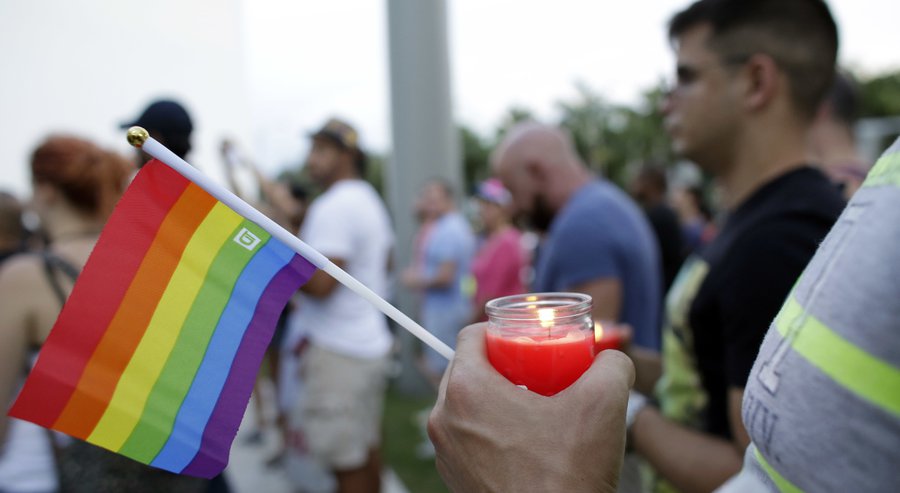
A gunman wielding an assault-type rifle and a handgun opened fire inside a crowded gay nightclub in Orlando, Florida, early Sunday, killing at least 50 people in the deadliest mass shooting in modern U.S. history. Here are stories of some of the victims. ___ Edward Sotomayor, 34, was a caring, energetic man known for wearing a silly top hat on cruises, according to David Sotomayor, who said the two discovered they were cousins after meeting at Orlando’s annual Gay Days festival around a decade ago. David Sotomayor, who lives in Chicago, told The Associated Press Sunday that Edward worked for a company that held gay cruises and often traveled to promote the company’s events. “He was just always part of the fun,” David Sotomayor said. The two texted regularly and kept in touch, last seeing each other earlier this year at a filming of the television reality show “RuPaul’s Drag Race,” David Sotomayor said. David Sotomayor is a drag queen who appeared on a season of the show using the name “Jade.” He said Edward Sotomayor supported him and often sent him Facebook messages. They last exchanged messages late last week. “You never think that’s going to be the last time you speak to him,” David Sotomayor said. “It’s just heartbreaking to know it just can happen anytime.” ___ Juan Ramon Guerrero, 22, told his cousin Robert Guerrero he was gay about two years ago, but he was worried about how the rest of his family would react. He did not tell them until just before the beginning of this year. And when he did? “They were very accepting,” said Guerrero, 19. “As long as he was happy, they were OK with it.” On Sunday morning, after learning that so many people had died at a gay nightclub, Pulse, that his cousin had gone to once in a while, Guerrero started to become concerned. Later in the day, his fears were realized when the family learned that Guerrero was identified as one of the victims. Robert Guerrero said his cousin worked as a telemarketer and in recent months he started attending college at the University of Central Florida. Guerrero said his cousin didn’t quite know what he wanted to study, but he was happy to be in school. And he was happy in a relationship with a person his relatives came to regard as a member of the family, Guerrero said. “He was always this amazing person (and) he was like a big brother to me,” he said of his cousin. “He was never the type to go out to parties, would rather stay home and care for his niece and nephew.” ___ Stanley Almodovar III’s mother had prepared a tomato-and-cheese dip for him to eat when he came home from his night out. Instead, Rosalie Ramos was awakened by a call at 2 a.m. Sunday telling her something had happened. Ramos told the Orlando Sentinel her son, a 23-year-old pharmacy technician, posted a Snapchat video of himself singing and laughing on his way to Pulse nightclub. “I wish I had that (video) to remember him forever,” she told the newspaper. A friend, Hazel Ramirez, told The Washington Post she also saw a video from Almodovar on Snapchat and learned Sunday afternoon what had happened. Ramirez described Almodovar as “kind, but sassy,” and someone who was comfortable with his own sexual identity. “He was so proud of who he was,” she told the Post. “He would do his makeup better than anyone else. It was so easy to be myself with him. Republished with permission of The Associated Press.
Hillary Clinton, Donald Trump adjust politicking following Florida shooting
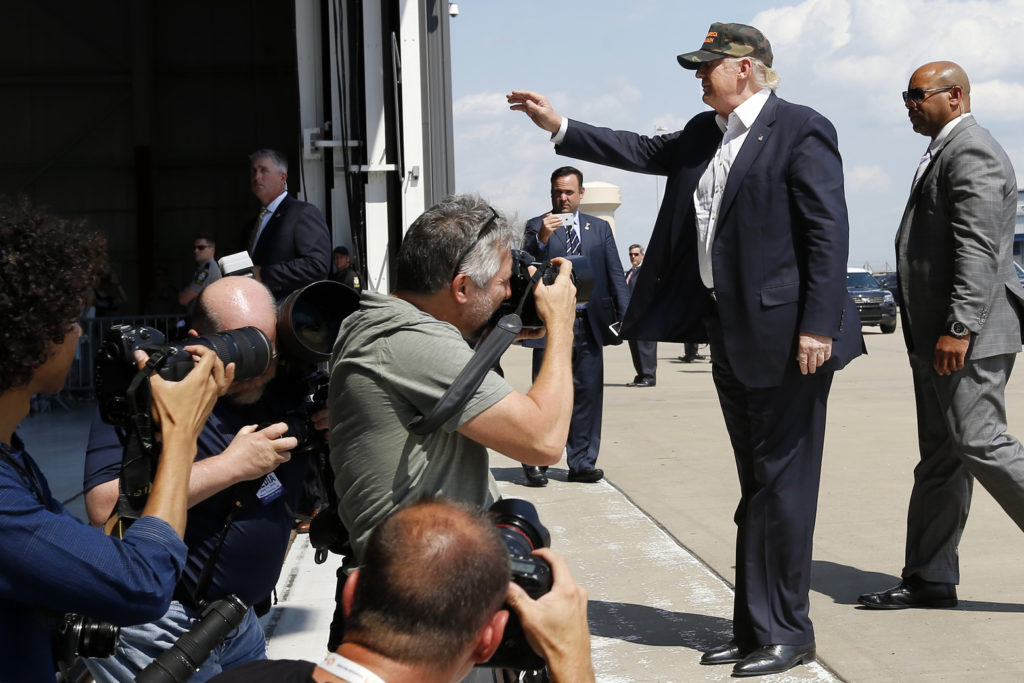
Donald Trump and Hillary Clinton adjusted their presidential politicking Sunday, first offering prayers and support to the victims of the worst mass shooting in U.S. history. But they both infused their sympathy with statements that favor their presidential aspirations, and the presidential race rolled on. The presumptive candidates made statements hours after a gunman wielding an assault-type rifle and a handgun opened fire inside a crowded gay nightclub early Sunday, killing at least 50 people before dying in a gunfight with SWAT officers, police said. Another 53 were hospitalized, most in critical condition. Officials identified the shooter as Omar Mateen of Port St. Lucie, Florida, a U.S. citizen born in New York. Clinton, the presumptive Democratic nominee, pushed for gun control and reached out to a key constituency — gays and lesbians. “The gunman attacked an LGBT nightclub during Pride Month. To the LGBT community: please know that you have millions of allies across our country. I am one of them,” she said in a statement, adding a call to keep assault weapons out of the hands of “terrorists or other violent criminals.” Trump, the presumptive Republican nominee, also offered words of support. But then spent the day congratulating himself apparently for predicting more attacks inside the U.S. On Twitter, he renewed talk of his plan to ban Muslims from the U.S. for an indeterminate time. And he went after President Barack Obama. As Obama stepped to the podium in Washington to address the nation early Sunday afternoon, Trump tweeted: “Is President Obama going to finally mention the words radical Islamic terrorism? If he doesn’t he should immediately resign in disgrace!” In his address Obama called the tragedy an act of terror and hate. He didn’t talk about religious extremists, nor did others, reluctant to inflame a stunned nation already on edge about attacks inspired by the Islamic State group. Obama said the FBI would investigate the shootings in the gay nightclub as terrorism but that the alleged shooter’s motivations were unclear. He said the U.S. “must spare no effort” to determine whether Mateen had any ties to extremist groups. Hours later, a law enforcement official confirmed to The Associated Press that Mateen had made a 911 call from the club, professing allegiance to the leader of Islamic State group, Abu Bakr al-Baghdadi. The official was familiar with the investigation but not authorized to discuss the matter publicly and spoke on condition of anonymity. The shootings inspired the candidates to shift their schedules and focus. Clinton’s presidential campaign announced it was postponing its first joint event with Obama on Wednesday in Green Bay, Wisconsin, because of the Orlando shooting. Trump said he was changing the focus of his speech Monday at Saint Anselm College in New Hampshire from his case against Clinton to “this terrorist attack, immigration and national security.” He also noted that he “said this was going to happen” and repeated his call for Obama to resign for refusing to use the words “radical Islam.” Clinton, Trump added, should drop out of the presidential race for the same reason. Trump has proposed temporarily barring all foreign Muslims from entering the country and has advocated using waterboarding and other harsh interrogation methods. Trump’s first tweet of the day was factual: “Really bad shooting in Orlando. Police investigating possible terrorism. Many people dead and wounded.” Tweeted Clinton: “Woke up to hear the devastating news from FL. As we wait for more information, my thoughts are with those affected by this horrific act.” And then they resumed their plans Sunday. On schedule, Clinton’s campaign unveiled its first general election ad Sunday morning. It will run in battleground states beginning Thursday. And Sen. Bernie Sanders, still in the contest for the Democratic nomination despite Clinton’s claim on it, went on with a round of appearances on the Sunday talk shows. He acknowledged the tragedy — then said he would not drop out of the race and endorse Clinton until he’s convinced she’s committed to fighting wealth disparity. He later issued a statement of sympathy to the Florida victims, with no political overtones. Two hours later, Trump responded to the Clinton ad. “Clinton made a false ad about me where I was imitating a reporter GROVELING after he changed his story. I would NEVER mock disabled. Shame!” The Clinton ad uses footage of Trump onstage, flailing his arms in an apparent attempt to mimic New York Times reporter Serge Kovaleski, who suffers from a congenital condition that restricts joint movement. At the time, Trump was taking issue with a story Kovaleski had written for The Washington Post. Roughly two hours after that tweet, Trump returned to the shootings. “Horrific incident in FL. Praying for all the victims & their families. When will this stop? When will we get tough, smart & vigilant?” he tweeted. An hour later, he followed up with some self-praise: “Appreciate the congrats for being right on radical Islamic terrorism, I don’t want congrats, I want toughness & vigilance. We must be smart!” Republished with permission of The Associated Press.
Alabama politicians react to deadly shooting at Orlando nightclub
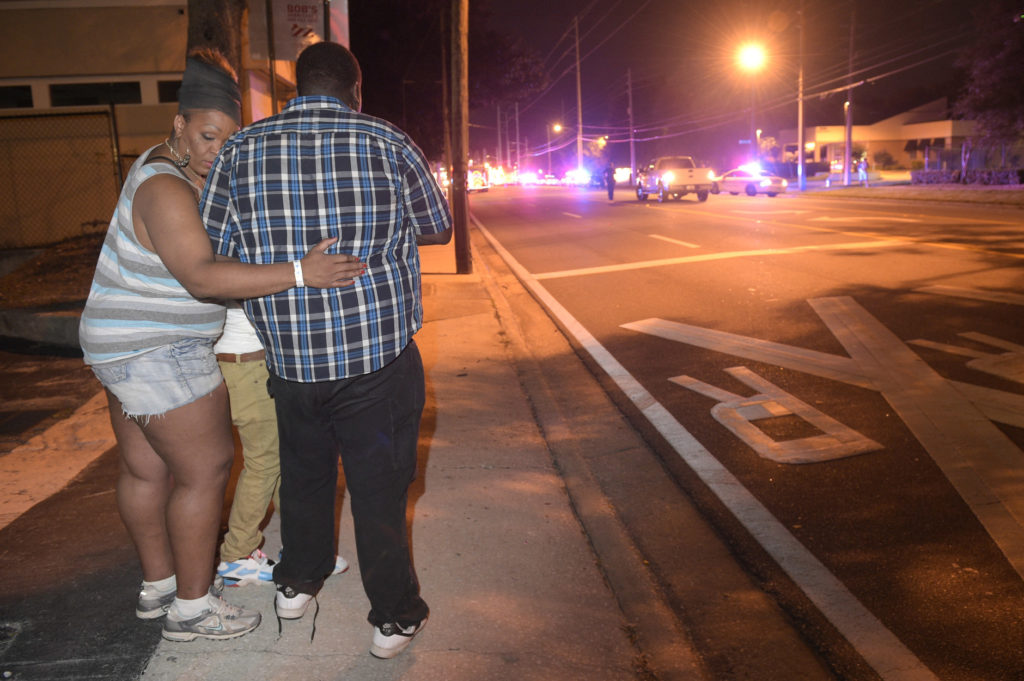
Following a deadly shooting early Sunday morning that claimed the lives of at least 50, including the gunman, at a popular gay nightclub in Orlando, Florida, Alabama politicians offered their condolences for the victims and their somber support for people in Orlando. Here’s what they’re saying: Alabama Governor Robert Bentley (via news release): The Alabama Law Enforcement Agency has been briefed by the FBI and the Department of Homeland Security regarding the tragedy in Orlando. The act of terror appears at this hour to be an isolated incident with no known immediate threats. However, Alabamians should be on alert, especially when attending large mass gatherings throughout the state. As always, if you see something, say something. Report anything suspicious to the Alabama Fusion Center. ALEA Secretary Stan Stabler is receiving regular briefings as the situation unfolds. The taking of innocent lives is always a hate crime, and any act of terror is a threat to everyone’s security. Alabamians are strong in love and in faith, and I ask the people of our state to pray for the Orlando families, for law enforcement and, yes, for our enemies. We remain diligent in protecting the safety and security of all Alabamians. Alabama Attorney General Luther Strange (via Facebook post): Sending our prayers to Orlando. U.S. Senator Richard Shelby (via Facebook post): I’m deeply saddened by the horrific tragedy in Orlando. My thoughts and prayers are with the victims, their families, and the first responders. Alabama 1st District U.S. Congressman Bradley Byrne: The tragedy in Orlando is a strike at every American. Our hearts go out to the wounded and their families, but most especially to the family and loved ones of all who were killed. There is no room for hate in America, and this ugly crime is the result of a coward following his own hate. It doesn’t matter what the source of that hate was – it was and is an affront to God himself. Alabama 2nd District U.S. Congresswoman Martha Roby (via Facebook post): I’m horrified and heartbroken by the terrorist attack in Orlando. I’m praying for the victims and their families, and I ask others to send prayers of comfort and healing for everyone affected. This is the worst terrorist attack on American soil since September 11, 2001. Though reports on the killer’s ties to specific groups still coming in, we must fully dispel the notion that our struggle against radical Islamic terrorism is solely an overseas fight. That fight is here in the Homeland, and all American leaders must come to grips with it. Alabama 4th District U.S. Congressman Robert Aderholt (via news release): I was sad to hear about the terrorist attack in Orlando, on American soil. This and other attacks we have seen, prove that we do not have the luxury of debating the political correctness of ‘radical Islam ‘. We need to focus on these and other terrorists and do whatever it takes to identify and hunt down those who would do us harm. It was disheartening to hear some in the media, and even the President in his initial remarks, use this tragedy as a means to push any type of political agenda relating to gun control. Terrorists by their very definition are criminals and will find a way get their hands on guns. What the president is proposing would take guns away from the very people who would defend themselves. That said, it is too soon to inject politics into the discussion. The White House and Congress should focus on the task at hand – protecting the homeland. Alabama 6th District U.S. Congressman Gary Palmer (via Facebook post): My thoughts and prayers are with the victims of the act of terror in Orlando, their families and the first responders. It is clear the fight against terror has reached the Homeland, but we as Americans cannot give in to terror. Instead, we must stand together and defend the safety of our nation against those who wish to do us harm. Huntsville Mayor Tommy Battle: Our thoughts and prayers are with the families of the victims and the people of Orlando. From one community to another, we stand with you. In vivid instances of hate like the episode of terror early this morning, we’re reminded that we as a people cannot let violence define our city, our state, or our nation. In Huntsville, we will not tolerate bigotry or intolerance. Truly, we are stronger – better – when we unite together as Americans. It is important to know that we have no reason to believe Huntsville is under any threat at this time. We’ve been in close contact with the Huntsville Police department since early this morning and will continue to closely monitor the situation and take appropriate measures to keep Huntsville safe. The ability to live our lives peacefully is one of our most basic responsibilities as leaders and public servants. And it’s one we’ll continue to stand up for vigorously.

